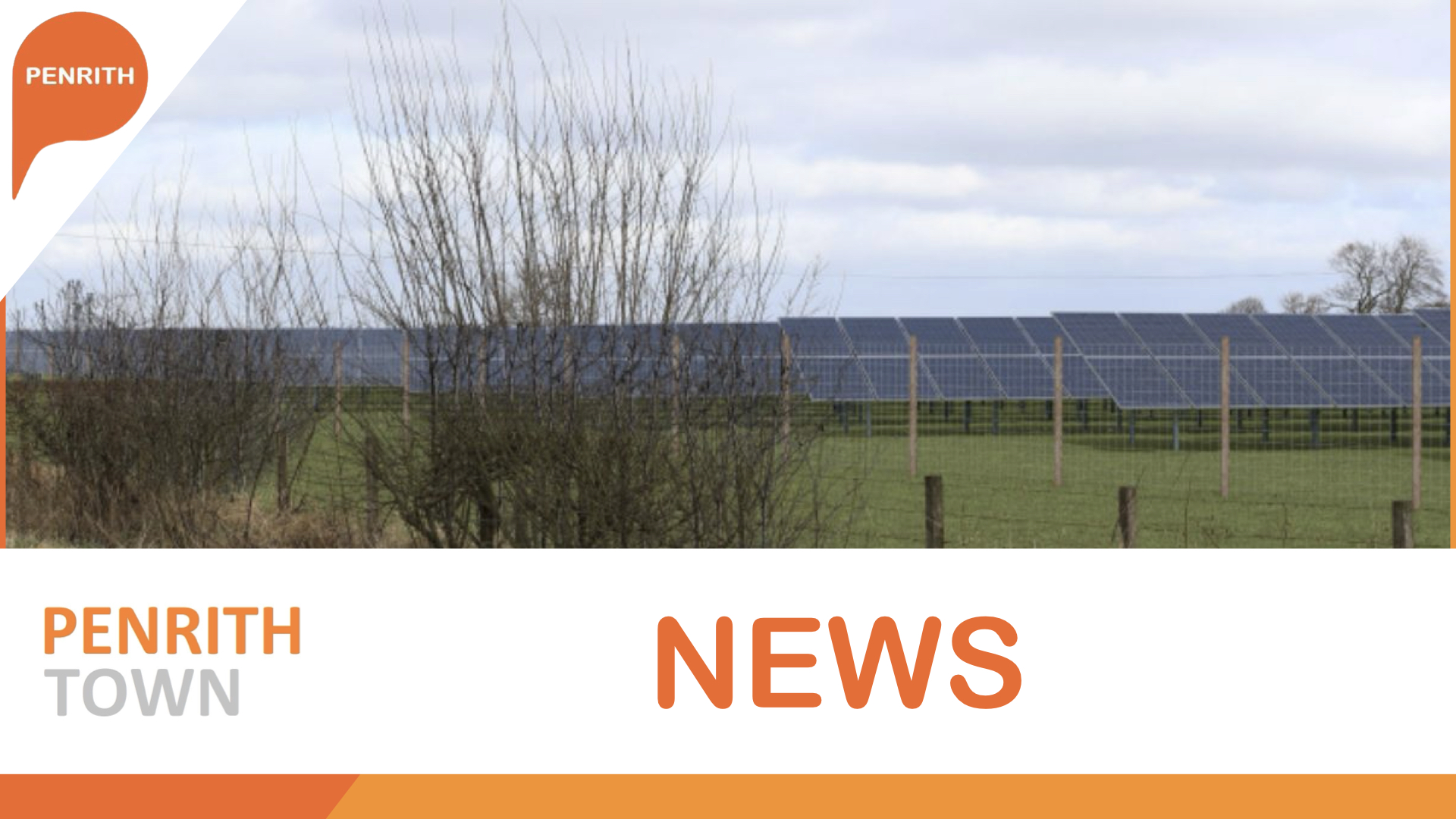
A planning consultation over plans for a controversial solar farm on land at Calthwaite came to an end today (Thursday 18th September) with more than 270 comments, many objecting to the plans, received from as far away as Kent and Darlington.
The application is for a site on land at Devonshire Square in Calthwaite and, according to a design statement, the applicant is High Rigg Solar.
It describes the site as agricultural fields and it adds: “The village of Calthwaite is 2.7km to the north-east of the site and Penrith is approximately 10km to the south-east. The site is bordered on its western side by a minor road that joins the B5305 to the south of the site.”
According to the report it is proposed that an underground cable would route from the on-site switch room to an electricity sub-station to the east of the site at Hutton End.
It is proposed that the development would include individual solar PV panels mounted on racks and arranged in rows of south facing modular tables to be inclined to angle towards the sun.
The report states: “Each panel will be a maximum of 2.8m from the ground and orientated to the south to maximise energy generation.”
The report concludes: “The proposed development comprises a 30MW solar farm.
“As set out at the beginning of this section the UK has ambitious targets for reducing greenhouse gas emission and moving towards a low carbon society, with the latest document being Clean Energy 2030, as launched by the new Labour Government.
“The only realistic way these aims can be achieved is if a huge amount of renewable energy is deployed and at present, the UK is falling behind on its obligations in this respect, which makes the need for new renewable energy to be deployed ever the more urgent.”
However, Joanne Berry, from Hythe in Kent, responded and said: “There are thousands of brown fields that these plans could go into, but instead you are adamant on destroying quality land suitable for sustainability.
“It’s advertised as a way to help net zero, but how does this work when we are destroying local farmers businesses and all our arable land?
“If we have no farmland left to grow our crops because of these solar farms creating ‘net zero’ how does this work when we then need to import more food in from other countries?”
And David Briggs, from Darlington in County Durham, added: “I am a very frequent visitor to the Lake District and the Eden Valley and was extremely upset to find out that there has been an application for a substantial solar development in the area.
“I am very much in favour of a greener approach to energy, however, I am against the use of arable land of any grade.
“It is clear from the photographs of this site that this is a fully viable farm. With the current pressures on food security in the UK I would object strongly to arable land being used for this type of development. This is a totally inefficient use of land in this way.”
The planning application is currently being considered by planning officers at Westmorland & Furness Council.
Main report by Ian Duncan (LDRS)
 Then select "Add to Home Screen"
Then select "Add to Home Screen"